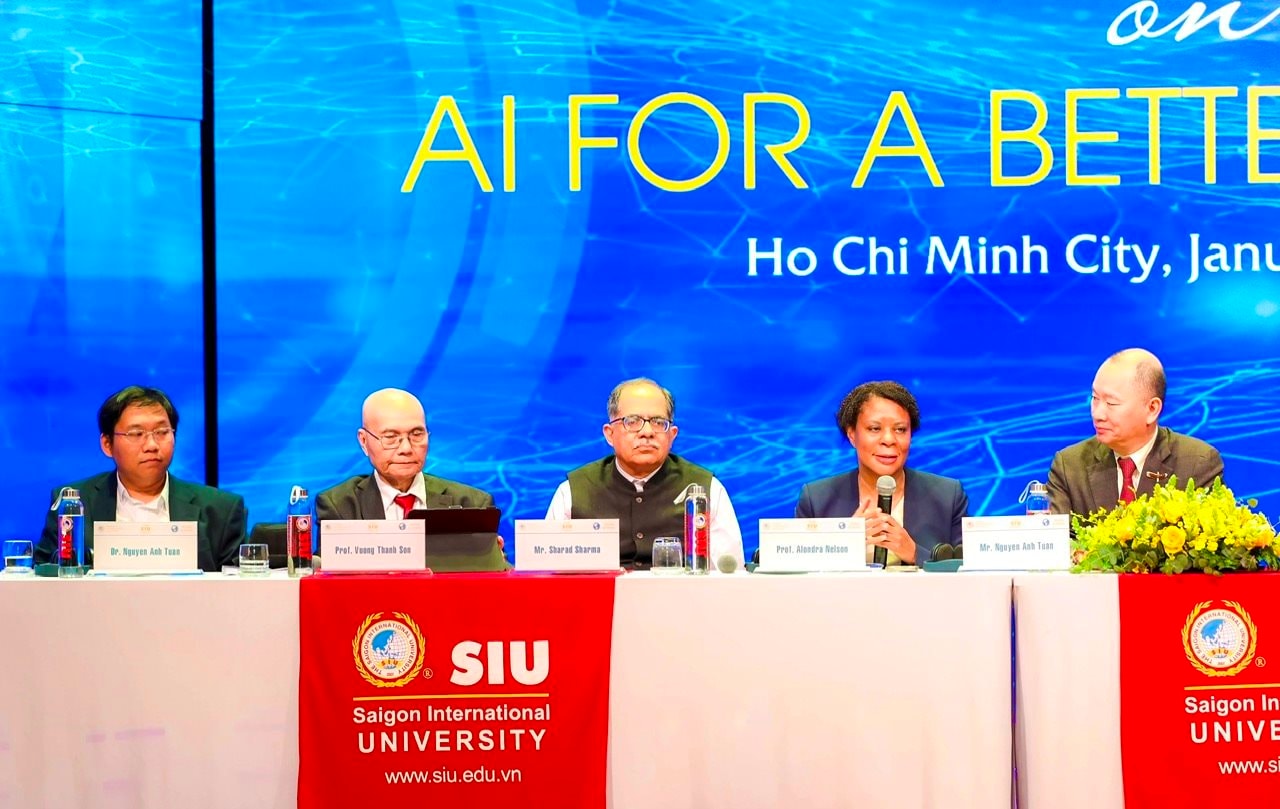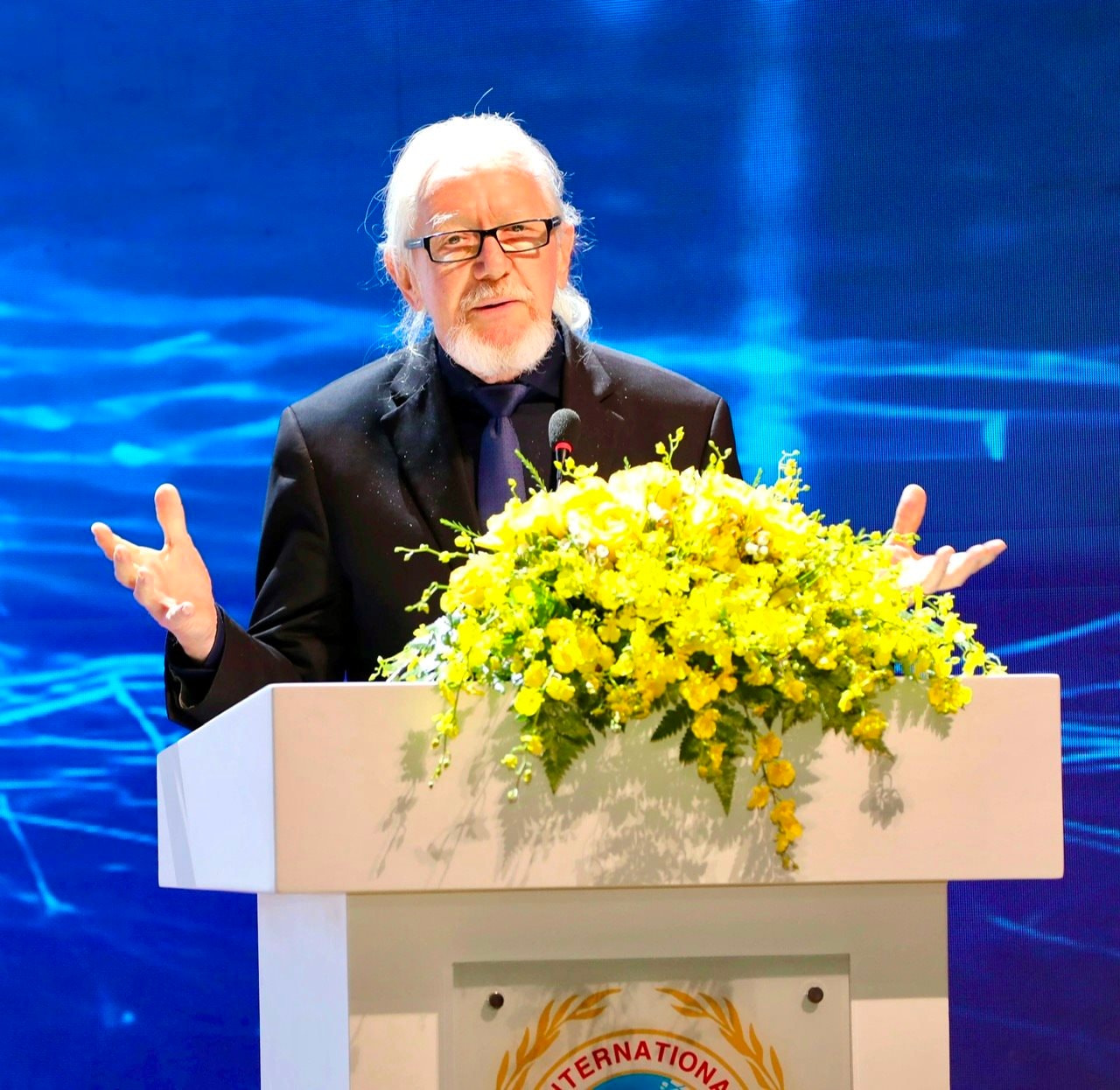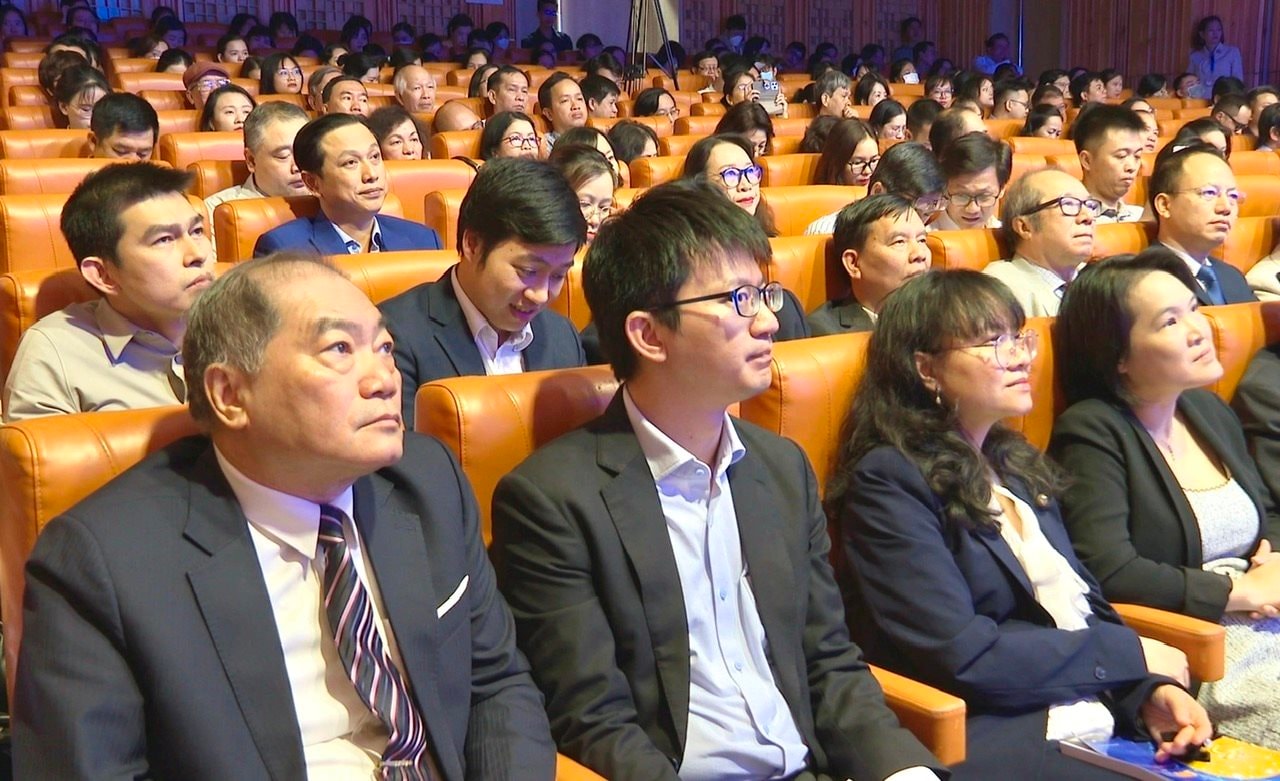Artificial Intelligence: The Key to Shaping a Sustainable Future
English - Ngày đăng : 09:02, 12/01/2025

Sustainable AI: From Breakthrough Ideas to Practical Applications
The current growth of artificial intelligence demands not only technological innovation but also a commitment to its safe and sustainable use. Professor Thomas P. Kehler, CEO of Crowdsmart San Francisco, introduced a new generation AI architecture inspired by physics, neuroscience, and collective intelligence.
Professor Kehler’s model goes beyond risk mitigation by integrating human reasoning and cognition, opening up new opportunities to address global challenges. “This system doesn’t merely support but truly collaborates with humans, delivering flexible and sustainable solutions,” he remarked.

Additionally, the conference showcased more than 30 in-depth scientific studies on advanced AI applications across various domains, particularly healthcare and education. For example, AI has been employed to predict diseases early, optimize treatment processes, and enhance students’ learning experiences through personalized learning systems. These advancements promise not only to improve quality of life but also to foster sustainable development on a global scale.
Smart Cybersecurity: The Power of Explainable AI
One prominent issue raised at the conference was cybersecurity, a field facing increasingly sophisticated threats. Dr. Michael Cardei and Dr. Thai Tra My from the University of Florida presented their research on leveraging explainable AI to enhance the detection and mitigation of cyberattacks.
Using the CIC-IDS 2017 dataset, the research team trained deep neural networks to analyze and detect malicious network activities. Beyond mere detection, they applied neural activation analysis to clarify how the system identifies threats. This approach not only improves transparency but also enables the system to recognize more intricate attacks, thereby bolstering cybersecurity capabilities.

Experts also emphasized the role of AI in developing automated cybersecurity systems that can learn and adapt to new attack patterns. Such advancements are crucial for addressing the ever-growing threats in the digital world.
AI-Driven Governance: A New Direction for Global Administration
On a macro scale, Dr. Nguyen Van Tuan and Dr. Michael Dukakis presented a groundbreaking vision of public governance through the AIWS (Artificial Intelligence World Society) Government Model. This model is designed to enhance the efficiency of state management by integrating AI into every operational aspect.
According to Dr. Tuan, the AIWS Government operates 24/7 with a focus on delivering continuous and effective public services. “We are not just concentrating on technology but also prioritizing ethical considerations to ensure AI is used to serve the citizens' best interests,” he affirmed.
A standout feature of this model is the reorganization of government personnel into AI-supported shifts, optimizing productivity without reducing human resources. Moreover, the research team introduced Boston Areti AI (BAI), an AI system designed to learn from exceptional leaders, aiding decision-making processes in management.
Beyond governance, the AIWS framework extends to other fields, such as education and healthcare. The establishment of AIWS University and AIWS Healthcare exemplifies how these principles can drive comprehensive reforms, from training talents to providing advanced healthcare services.
The “AI for a Better World” conference was not only a venue for sharing cutting-edge research but also a platform for experts to collaborate and set directions for the future of artificial intelligence.
AI is and will continue to be a critical factor in shaping the world, from practical applications in daily life to macro-level reforms in governance and sustainable development. However, the success of AI depends not just on technology but also on how humanity collaborates and directs its use.
Only when AI is developed based on ethical principles, transparency, and a human-centric approach can it truly become a tool for building a better world. This conference is a testament to the tireless efforts of global scientists and leaders in transforming AI from a promising technology into a transformative force for the future.
